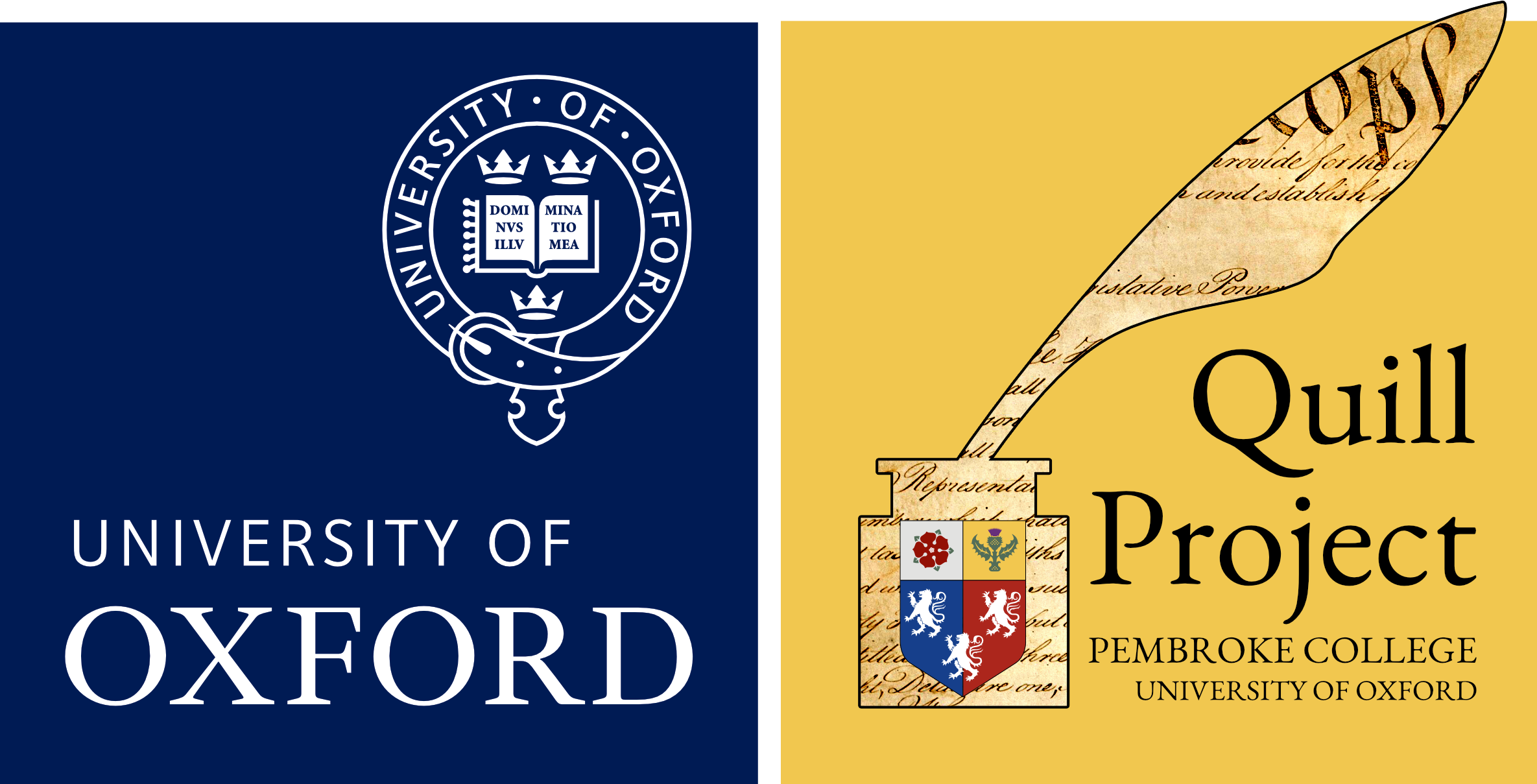> Projects
Governor Gardner signing resolution ratifying amendment to U.S. Constitution granting universal franchise to women / Carl Deeg (Library of Congress, Lot 5543)
THE NINETEENTH AMENDMENT AND THE RIGHTS OF WOMEN
The Nineteenth Amendment to the US Constitution, giving women the right to vote in both state and federal elections, was ratified on the 18th August 1920. The Quill project has marked this centenary with a collection put together by Mary Nelson Hill, one of the students at Utah Valley University.
Unlike many of our projects, the text itself is short, straight-forward, and was almost unchanged from the suggestions that had first been made for the text of such an amendment in 1877:
The right of citizens of the United States to vote shall not be denied or abridged by the United States or by any State on account of sex. Congress shall have power to enforce this article by appropriate legislation.
The wording of this amendment follows the pattern of the 13th, 14th, and 15th amendments in not only asserting the principle to be adopted by all states but by giving Congress the power to legislate to enforce the provision.
The Quill Project’s publication of the congressional debates does not show much evolution in the formal language of this provision, but does allow insight into the ways in which the proposal was stalled in Congress for more than forty years, and the arguments made by the men in Congress for and against the proposal over that time.
We have included in this collection the legislative history of the Edmunds-Tucker Act 1877, which actually removed the right of women to vote in the Utah Territory, which they had been able to do since 1870. This was part of a broader set of provisions that were taken against members of the LDS Church principally out of a desire to eradicate polygamy.
The issue of giving women the vote was much discussed in the 1895 Salt Lake Convention, the records of which you can also explore in the Quill Project’s research platform.
The first U.S. State Constitution to grant women the vote was the 1888 Constitution for the State of Wyoming. Our publication of the records relating to that states Constitutional Convention is being funded in part by a National Endowment for the Humanities Digital Advancement Grant, and will be online later this year.
As she graduates, this is also an excellent opportunity to thank Mary for her hard work with the project over the last two years, during which time she has helped to manage a growth in the number of student teams working with us, as well as to organize training for teachers and court clerks as they start to use our digital outputs in their own work.
This project is still undergoing final checks prior to publication later this year, but you can view the working version here.

